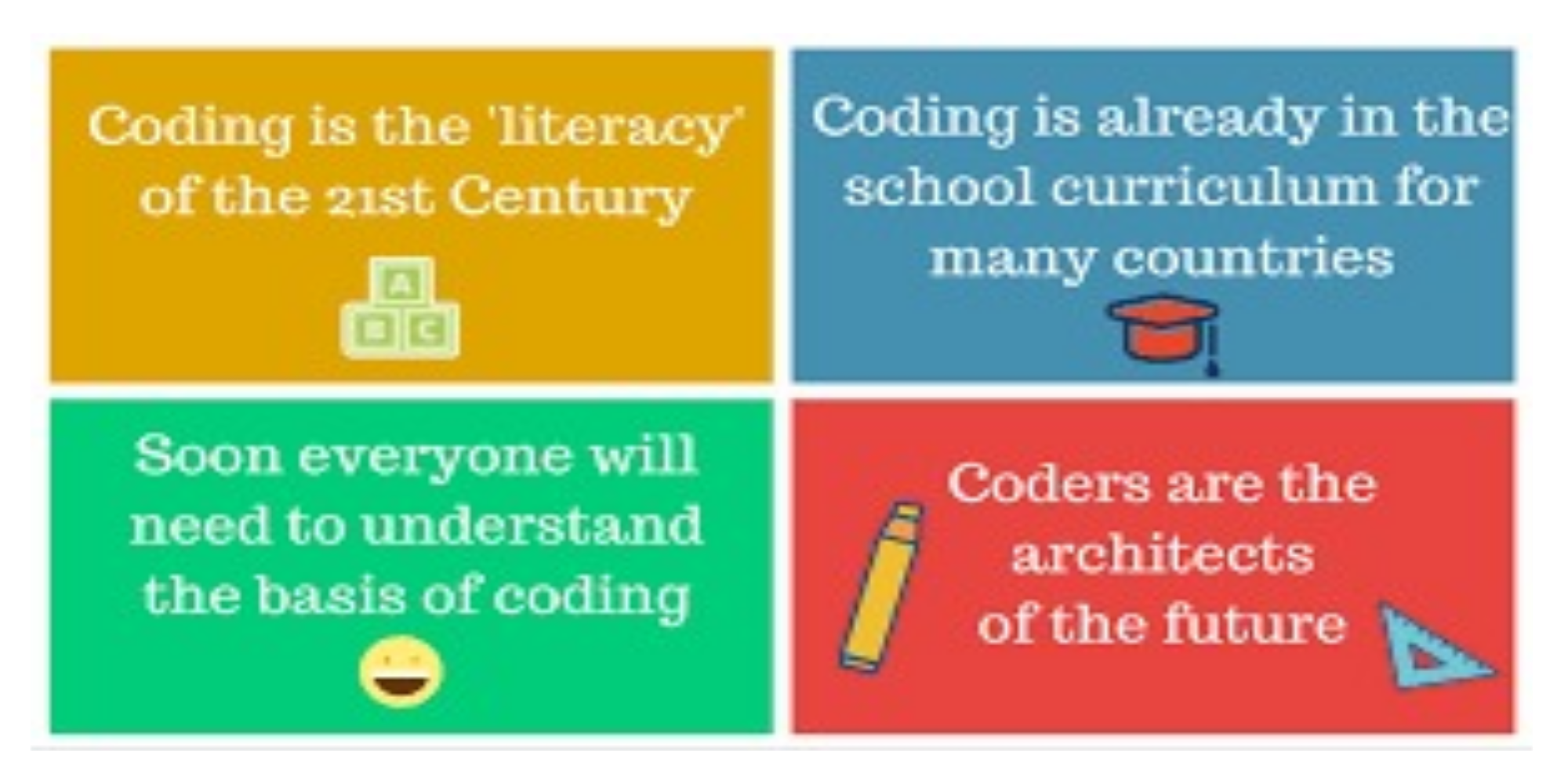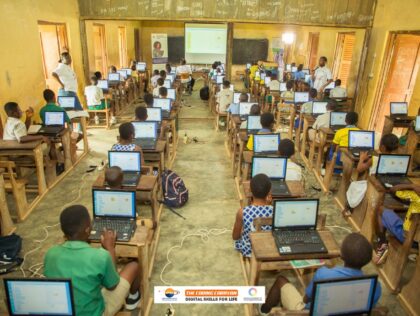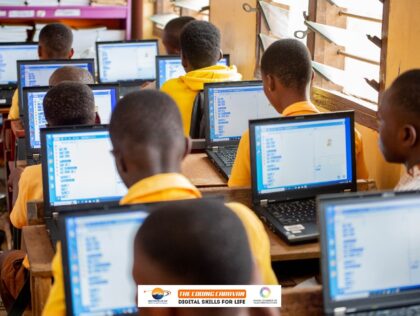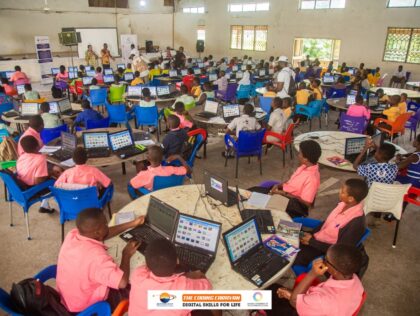The fourth industrial revolution presents opportunities in emerging technologies such as robotics, artificial intelligence, blockchain, The Internet of things, quantum computing, big data, cloud computing, machine learning, mobile applications, nanotechnology and 3D printing among others. These technologies are disrupting industries and changing how we work making it impossible for people with “20th century education” to thrive in the world of work.
To become competitive going forward, one needs what has become known as the 21st Century Skills. According to the World Economic Forum, the 21st century skills which are also widely known as “soft skills” can be categorized into foundational literacies, competencies and character qualities.

Source: World Economic Forum
A key foundational skill is ICT literacy. According to the International Telecommunication Union (ITU), digital skills exists in a continuum and coding or computer programming is part of these skills. They range from basic skills such as using Microsoft Word to intermediate skills such digital graphic design and advance skills in areas such as Data Science and The Internet of Things. Basic ICT skills are required by everybody irrespective of their profession or career choice. However, being computer literate is not enough to succeed. You also require soft skills that will help you confront challenges with confidence. At the Institute of ICT Professionals, Ghana (IIPGH), we use coding as a tool to help young people acquire these 21st century skills.
Part of the 21st century skills is focused on building competencies such as critical thinking and problem solving, creativity, communication and collaboration. Therefore, every coding project is focused on using digital skills to solve problems. Usually, the coding projects are introduced early in the programme so that the children will concentrate on the problem they are required to solve. As I communicated in my earlier article, “Introducing Coding in Basic Schools: Benefits and Challenges”, coding offers children the chance to learn how to communicate their solutions in a language that is logical and structured. In addition, coding helps to unleash the creativity in children as they try new things. From observing children at our coding sessions, I can conclude that coding projects are excellent avenues for teaching teamwork.
We live in an era where things are changing rapidly. For those who wish to make an impact, in addition to the competencies mentioned above, certain time-tested qualities must become second nature to them. Characteristics such as curiosity, initiative, persistence, adaptability, leadership and social and cultural awareness are crucial to personal achievement because the world has become complex, dynamic and uncertain. You need an inquisitive mind to unlock the complexities of the wicked problems such as poverty and climate change that confront us. Solutions will not come easily because things keep changing quickly. To succeed we must be persistent and adaptable.
Of all the qualities mentioned, Thelma Quaye, the Head of Business for NetGuard Group Limited and the former Chief Technology Officer of Airtel Ghana, believes the most important is adaptability. I sat in a talk that she gave to students of Tema International School earlier this year as she explained why this generation must learn to adapt. As I analyzed my own life journey I cannot but to agree with her. In the last couple of years, I have had to learn, unlearn and relearn so many things in order to remain relevant. As the technology landscape changes, some jobs will become irrelevant and most jobs descriptions will change completely. It is therefore important that we train our children to be able to learn new skills as technologies changes. And I see no better way to help them develop these skills other than using coding.
At the start of our coding programmes, the children usually want to sit quietly and follow instructions. However, as they become comfortable with coding, they take the initiative and try out new things. Some of them even guide and direct their peers without the assistance of the tutors. We encourage this because we are convinced that Ghana needs leaders who can take initiative.
Our web development course starts with an introduction to the internet and the opportunities it offers for personal development. With the internet, one does not need to travel “physically” in order to be culturally and socially aware of today’s global village. Every part of the world is within reach with just a click. All the skills mentioned above accounts for why I insist that coding is good for every child irrespective of his or her future career aspirations.
As Ghanaians we cannot deny that our current educational system does not provide these skills. It is time to pay attention to the 21st Century Skills and coding is an excellent tool to use. Making coding a mainstream subject in our schools is no longer an option.





